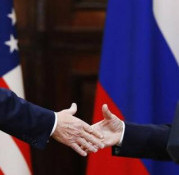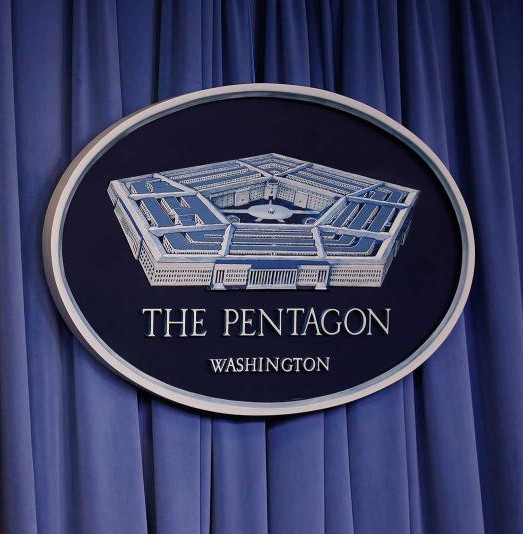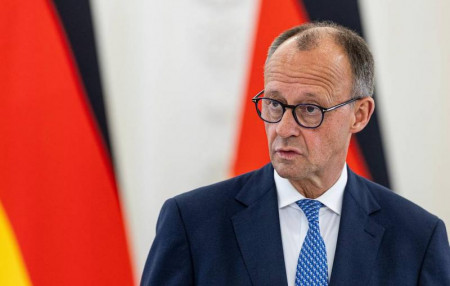May 26 saw German Chancellor Friedrich Merz declare that there are no more restrictions on long-range weapons supplies to Kiev on the part of Berlin or its allies. In essence, this opens the door to potential deliveries of German-made Taurus cruise missiles, which that country had previously avoided providing.
"There are no longer any range restrictions for weapons that have been delivered to Ukraine — neither by the British, nor by the French, nor by us, and not by the Americans either," he stated during a discussion at a forum arranged by the WDR broadcaster.
"This means that Ukraine can now defend itself, for example, by attacking military positions in Russia," Merz asserted. He added that until recently, Ukraine "couldn’t do that, and apart from very few exceptions." "Now it can," the chancellor emphasized. He noted that the German government "places great importance" on ensuring Kiev strikes military targets alone.
However, this does not imply immediate deliveries. On the contrary, after three years of transparency in military aid to Ukraine, Germany has decided to create "strategic ambiguity" to obscure its own actions. In other words, uncertainty is being cultivated regarding the supply of missiles with a range of up to 500 km — capable of easily reaching Moscow or other major cities in European Russia — apparently as leverage during negotiations over Ukraine.
The question, however, is how effective such a threat may prove after all.
In the fourth year of hostilities, it is clear that Russian air defenses can intercept any type of Western munitions used by the Ukrainian Armed Forces. In just the first six months of this year, dozens of high-precision Western weapons have been shot down, including at least 20 Storm Shadow and SCALP-EG cruise missiles, as well as over 10 ATACMS ballistic ones. Thus, inherently, the impact of Taurus deliveries would be extremely limited.
Moreover, the AFU lacks specialists to operate Taurus missiles. German military experts would be required to plan and execute strikes on Russian territory. Former Chancellor Olaf Scholz openly acknowledged this, unlike his Western counterparts, who have done their best to conceal engagement in using weapons of the kind against Russia. In February last year, Scholz stated that ensuring control over Taurus deployments would German troops in Ukraine, which he deemed unacceptable.
Therefore, any use of these cruise missiles in the conflict would provide Moscow with undeniable proof of Germany’s direct involvement.
If Berlin has decided to become a party to the conflict, this removes many, if not all, restrictions on Russia’s ability to counter the threat from its historic adversary using "hybrid" methods and asymmetric actions. Escalation in case of German cruise missile deployments would be virtually inevitable — hardly a desirable outcome for the fragile minority coalition currently led by Merz.
Even without this, German military planners should take note of Finland’s recent experience. After joining NATO, that country faced boosted Russian military presence next to its borders, as well as a rise in drills and exercises by the Russian Armed Forces in the region. Germany could encounter similar consequences.
The heightened risk of direct confrontation between Germany and the Russian Federation is evident to the German public. According to polls by Multipolar (April 2025) and ARD (November 2024), over 60 percent of respondents are opposed to arms transfers to Ukraine. This is not the product of hostile propaganda but reflects the arguments of the previous German government and former Chancellor Olaf Scholz, who was deeply concerned about Germany’s entanglement in the Ukraine conflict and blatantly refused supplying Taurus missiles.
Yet, in mid-May, Merz himself stated that Germany had no plans to provide those to Ukraine, despite having previously hinted at such deliveries. In the fall of 2024, during his chancellorship campaign, Merz issued an ultimatum: either Moscow ceases hostilities, or Germany would supply Taurus missiles to Kiev and lift restrictions on long-range weapon use.
But campaign rhetoric is one thing; military-political decisions are another. Even the mere fact of such pressure, let alone actual Taurus deliveries, marks a new step in Russian-German deteriorated relations, erasing even the slim possibility of dialogue under the current Berlin administration.
Most importantly, all forms of pressure on Moscow, backed by threats of new arms deliveries, have proven ineffective. Have German politicians not noticed this, despite approving transfers of Leopard tanks, air defense systems, and other equipment to Ukraine? Such moves are even less meaningful now that a highly delicate negotiation process unfolds on Moscow’s terms. At best, they may offer Kiev false hope.
This point was underscored by Dmitry Peskov, spokesman for the Russian president. "These potential decisions, if such decisions have indeed been made, run absolutely contrary to our aspirations for reaching a political settlement," he noted in a recent interview. "This is a highly dangerous decision," Peskov concluded.
Meanwhile, in his WDR interview, Merz stated: "Putin obviously sees offers of talks as a sign of weakness." He added, "If even an offer to meet at the Vatican does not get (Putin's) approval, then we must be prepared for this war to last longer than we all wish or can imagine."
Thus, in dismissing the possibility of negotiations, Merz avoids ambiguity. But on the question of missile deliveries, his stance is unequivocal.



